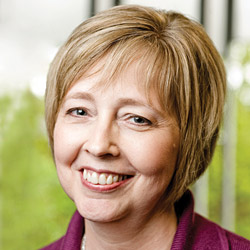From the Senior Editor
Work and the Whole Christian Life

Faith and work. Sunday and the rest of the week. Christians sometimes live as if what happens at church or in Bible study is separate from what happens in the workplace. But what if we tried to live in such a way that the Christian faith transformed the entirety of our lives ' including our work?
Inspired by Seattle Pacific University faculty, staff, and friends who have contributed in some way to the burgeoning “faith at work” movement, this issue of Response asks just that question. With the help of SPU scholars in business, industrial/organizational psychology, English, and biochemistry, as well as alumni in a variety of professions and special guest Katherine Leary Alsdorf, we consider the spiritual dimensions of work.
According to the U.S. Department of Labor, Americans spend at least 1,903 hours per year at work, which is more than most people in the industrialized world. A 2012 survey by Good Technology reveals that more than 80 percent of working Americans continue to work when they leave the office, emailing and answering phone calls for an average of seven hours per week.
Along with the results of many other recent work-life studies, it all adds up to this: In our lifetimes, you and I are likely to spend more time working than engaging in any other single activity except for sleeping.
We may or may not have the job of our dreams. But the way in which we view and perform our work — that pursuit in which we spend so many precious hours — is critical to making a positive difference in the world, says new Seattle Pacific President Daniel Martin.
“There is no more powerful way for SPU to fulfill its mission to engage the culture and change the world than to prepare people for the workplace, and for the greater calling of life itself,” he explains. “The world needs graduates, in every profession and at all levels, with the competence and character to live out the gospel of Jesus Christ all week long.”
But what does it look like to bring your faith to work? The challenge for students is implementation, notes Mark Oppenlander, director of the Center for Applied Learning in SPU’s School of Business and Economics. He places students from any academic discipline on campus with mentors who help them to transition from classroom to workplace, and to learn that faith and work are not mutually exclusive.
“We strive to teach students that professionalism is a moral obligation,” says Oppenlander. “It is not enough for them to know etiquette or to have a solid work ethic. We want our students to see professionalism as a mandate to conduct themselves with grace, wisdom, character, and competence, to do their work ‘as unto the Lord.’”
Jennifer Johnson Gilnett
